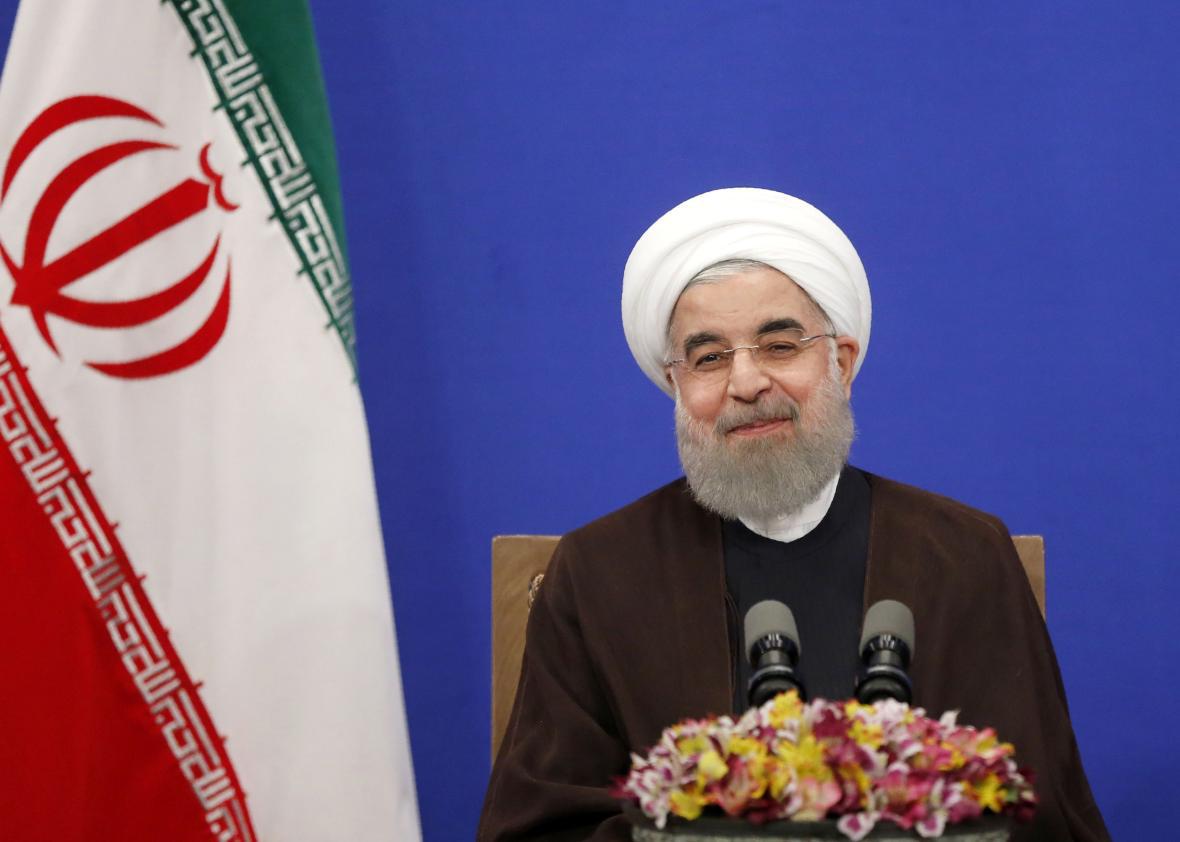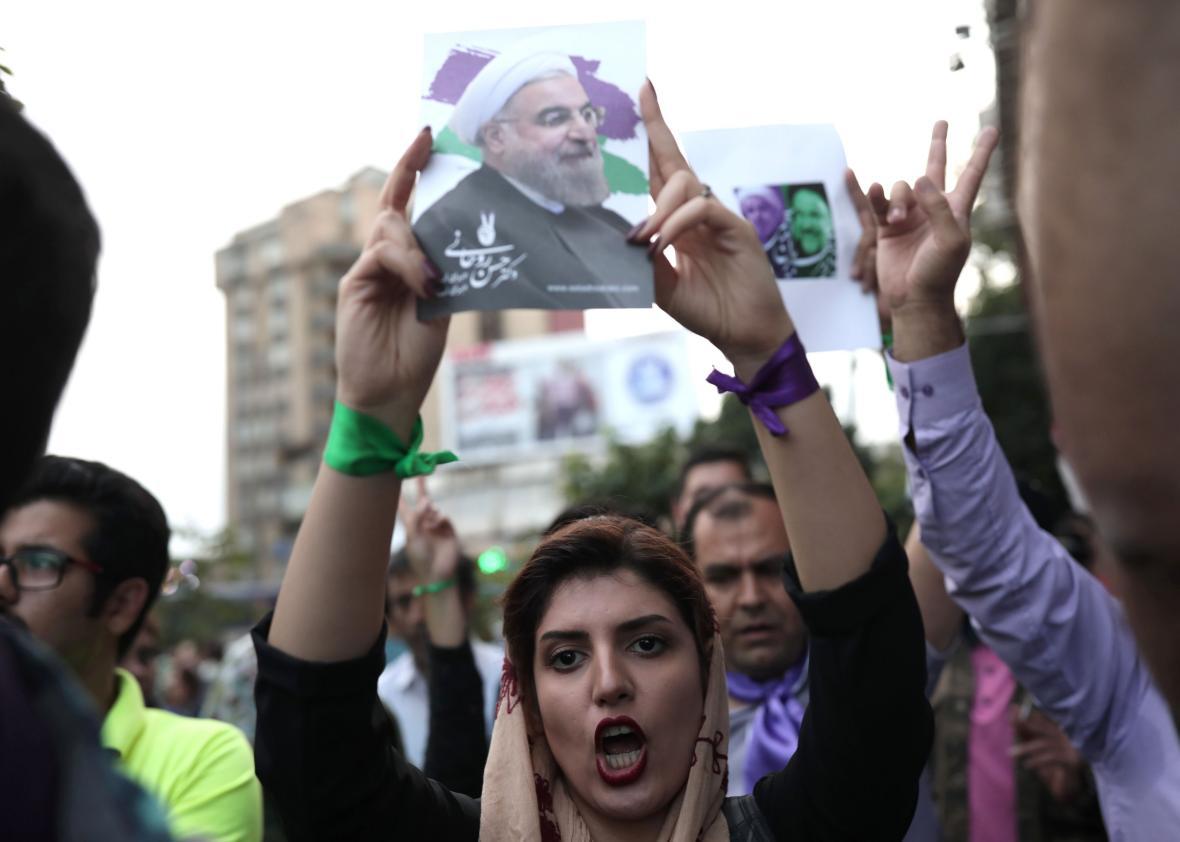Moderate Iranian President Hassan Rouhani celebrated his surprisingly decisive re-election victory as a clear sign that the country rejects hardliners who want to isolate the country from the world. “The Iranian nation has chosen the path of interaction with the world, a path which is distant from extremism and violence,” Rouhani said in first speech after his victory was announced.
In what many had predicted was going to be a closely contested election, Rouhani won 57 percent of the vote, almost 20 points more than the 38 percent his main challenger, hard-line Judge Ebrahim Raisi, received. The clear victory means the nuclear deal, which is his landmark achievement, is here to stay as Tehran will continue to try to get more foreign investors. Beyond the immediate effects, analysts were quick to point out that Rouhani’s decisive victory means moderates and reformists will have a bigger say in the high-stakes battle to choose a new supreme leader to take over for 77-year-old Ayatollah Ali Khamenei.*

Atta Kenare/AFP/Getty Images
Shortly after his victory there were clear signs that Rouhani is ready to lead a combative presidency. In his first speech after the vote, Rouhani thanked reformist figurehead Mohammad Khatami. “Security forces have banned any mention of the hugely popular former president’s name in the media,” explains the Guardian, “meaning Rouhani crossed a red line just hours into his new term.”
Although there was widespread fear of voter apathy before the election, polling stations were forced to stay open late as many lined up to vote late into the night. In the end, 70 percent of the electorate participated in the election. In Tehran, 5 million people went to the polls, double the number of 2013. The BBC’s Kasra Naji explains the significance of that number:
This was a revenge of the people against the hardliners who intimidated them, jailed them, executed them, drove them to exile, pushed them out of their jobs, and discriminated against women.
President Rouhani will now have a bigger mandate to push through his reforms, to put an end to extremism, to build bridges with the outside world, to put the economy back on track.
Iranians have said a resounding Yes to President Rouhani who, in recent years and particularly during the last several weeks of campaigning, promised to expand individual and political freedoms and make all those centers of power, like the Revolutionary Guard, accountable.
After the results were announced, thousands gathered in central Tehran to celebrate Rouhani’s victory that will embark him on a difficult second term. The New York Times explains:
He badly needs to demonstrate progress on overhauling the moribund economy.
While he accomplished his goal of reaching a nuclear agreement with the United States and Western powers in his first term, that has not translated into the economic revival he predicted because of lingering American sanctions.
He must also deal with an unpredictable and hawkish Trump administration that only reluctantly signed the sanctions waivers that are a central element of the nuclear agreement. At a summit meeting this weekend in Saudi Arabia between President Trump and leaders of predominantly Muslim countries, Iran was pointedly not invited.
*Correction, May 22, 2017: This post originally misstated Khamenei’s age. He’s 77, not 78.
